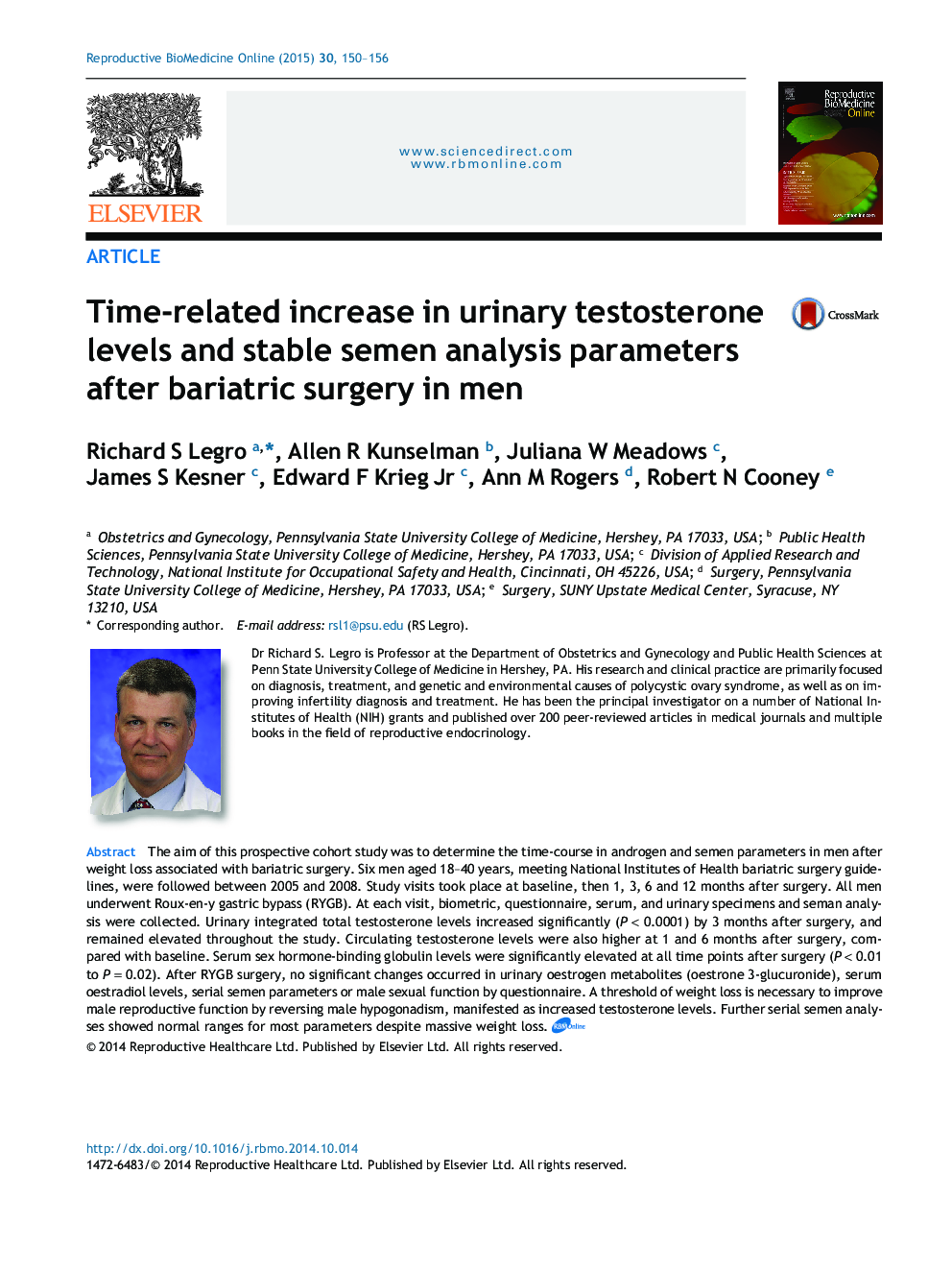| Article ID | Journal | Published Year | Pages | File Type |
|---|---|---|---|---|
| 6188839 | Reproductive BioMedicine Online | 2015 | 7 Pages |
Abstract
The aim of this prospective cohort study was to determine the time-course in androgen and semen parameters in men after weight loss associated with bariatric surgery. Six men aged 18-40 years, meeting National Institutes of Health bariatric surgery guidelines, were followed between 2005 and 2008. Study visits took place at baseline, then 1, 3, 6 and 12 months after surgery. All men underwent Roux-en-y gastric bypass (RYGB). At each visit, biometric, questionnaire, serum, and urinary specimens and seman analysis were collected. Urinary integrated total testosterone levels increased significantly (P < 0.0001) by 3 months after surgery, and remained elevated throughout the study. Circulating testosterone levels were also higher at 1 and 6 months after surgery, compared with baseline. Serum sex hormone-binding globulin levels were significantly elevated at all time points after surgery (P < 0.01 to P = 0.02). After RYGB surgery, no significant changes occurred in urinary oestrogen metabolites (oestrone 3-glucuronide), serum oestradiol levels, serial semen parameters or male sexual function by questionnaire. A threshold of weight loss is necessary to improve male reproductive function by reversing male hypogonadism, manifested as increased testosterone levels. Further serial semen analyses showed normal ranges for most parameters despite massive weight loss.
Related Topics
Health Sciences
Medicine and Dentistry
Obstetrics, Gynecology and Women's Health
Authors
Richard S. Legro, Allen R. Kunselman, Juliana W. Meadows, James S. Kesner, Edward F. Jr, Ann M. Rogers, Robert N. Cooney,
